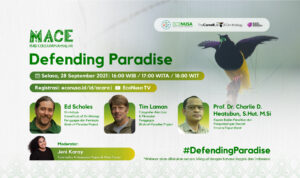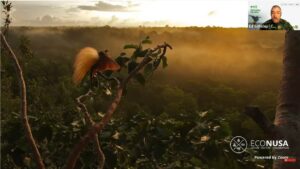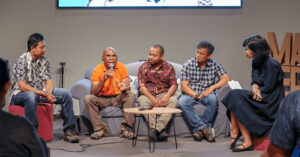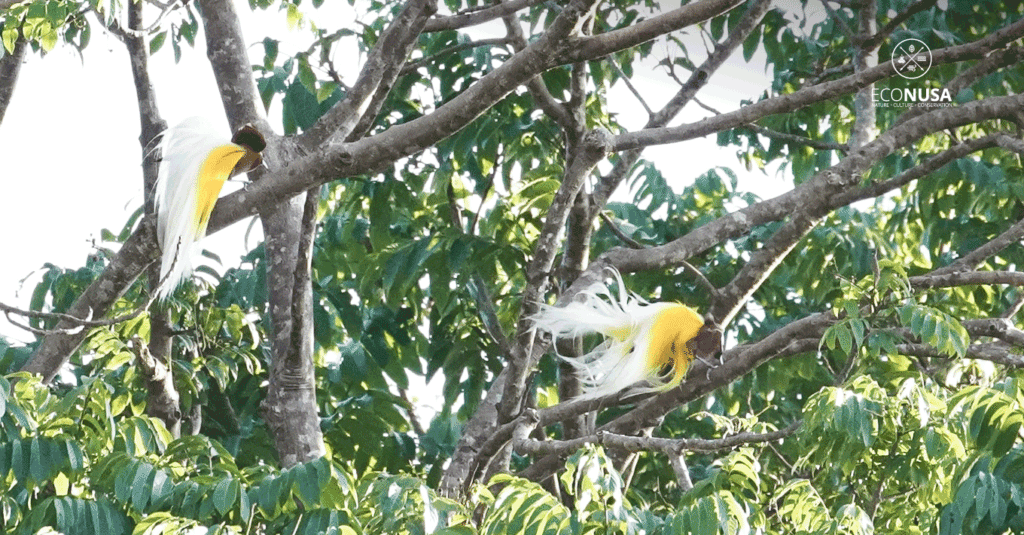
Birds-of-paradise is one of the protected bird families that develops into the indigineous people’s cultural identity in Tanah Papua. Birds-of-paradise also contain special traditional value if compared to other common birds or animals. Birds-of-paradise folklore is also passed around by elders to the youngsters from generation to generation.
Gustaf Toto, the customary leader or so-called Ondoafi of Necheibe Village, Ravenirara District, Jayapura, shared a folklore that is believed by indigenous people as the origin of birds-of-paradise. These birds have an important distinction in Papuan tradition.
“Based on what old generations told me, when God created life around this area, there were two brothers who lived here. They fought over the power to be a leader, so the oldest brother killed his little brother. Strangely, when the oldest brother was going to bury his little brother’s dead body, he found his little brother’s body turned into a yellow-plumage bird-of-paradise and he flew above. When the older brother regretted his cruel action, the little brother asked him not to be sad and said, ‘My brother, when you have both little or big party and ceremony, I will come and dance from above as a jahe bird (lesser bird-of-paradise name in local),” Ondoafi Toto shared the story.
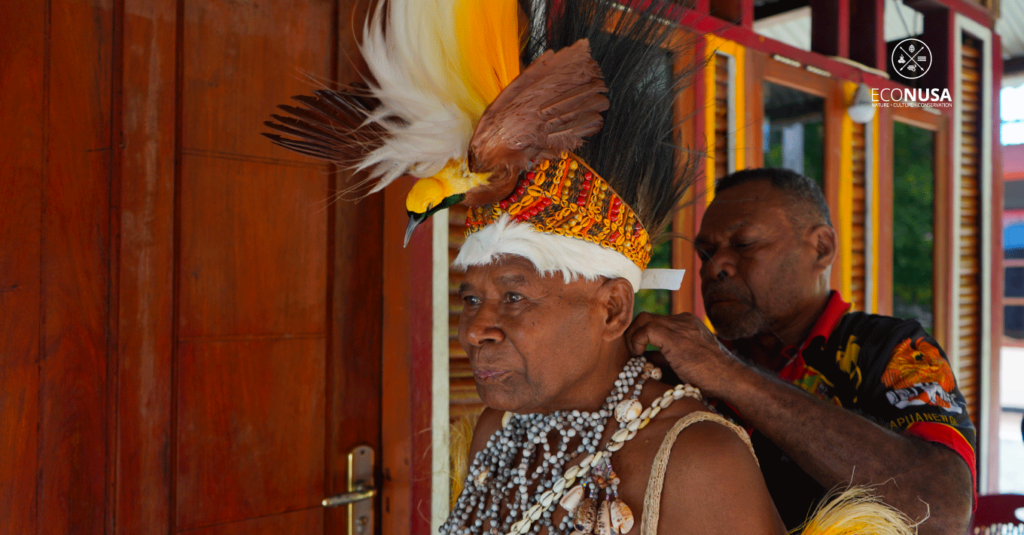
In a traditional rule, Ondoafi will wear a yellow-plumage crown made of bird-of-paradise feathers in special occasions like traditional ceremonies or special meetings. This crown is inherited from previous Ondoafi to the latest Ondoafi from generation to generation.
“This crown can only be worn by the oldest Ondoafi. This is not an ordinary bird but it is a little brother. As a human, I am the older brother, and this bird-of-paradise is the little brother.” said Ondoafi Toto.
He also explained why an Ondoafi must wear the crown. “This is not an ordinary bird, but this is a little brother’s reincarnation. In tradition, this crown is worn by the oldest one. Because brothers love each other, the little brother will come to accompany his brother and dance together in special parties or ceremonies,” Ondoafi Toto continued his story.
Hendra Maury, an Ecologist from Cenderawasih University, revealed that the placement of the birds-of-paradise as a sacred bird which is deemed the bird from paradise can be seen from the way the indigenous people give their honor, that as a traditional attribute not everyone cannot put on the crown.
“Only certain people have the right to use this ornament. This is actually the indigenous peoples translating the concept of nature into their culture. So the indigenous people place the birds-of-paradise as a sacred and special bird family, so that the traditional figure who uses the ornament is believed to be the person who was sent to be a leader in their local community,” said Hendra.
In Papuan culture and tradition, indigenous people have incorporated the concept of conservation into cultural concepts from generation to generation orally. The forest position is considered to be a mother who takes care of their life which then generates customary rules to protect forest and not to destroy nature. While a folklore taking for birds-of-paradise as a brother reincarnation then generates customary rules that prohibit people from hunting, shooting, hurting birds-of-paradise or disturbing trees as cenderawasih’s homes.
In addition to folklore connection, the yellow-plumage bird-of-paradise crown which is worn by Ondoafi also signifies a distinction and confirmation of Ondoafi’s position as a traditional leader in the customary government system. The crown becomes legitimacy and recognition that Ondoafi as a traditional leader has the authority and power to administer traditional governance for the welfare of the community.
The strong connection between birds-of-paradise and customary leader also brings a belief that the coming of the yellow birds-of-paradise (Lesser or Greater Birds-of-Paradise) in the village indicates the occurrence of events within the scope of customary community.
“If people see a yellow bird-of-paradise coming early in the morning, crossing over the village and flying from the east to the west, it is a sign of sad news. It is a sign that Ondoafi will pass away and end his reign,” said Ondoafi Gustaf Toto.
Interview: Novie Sartyawan, Astried, & Robertho Yekwam
Author: VA. Wulandani
Editor: Leo Wahyudi


